Rivering: On Place, Movement, and Memory
A nomad, a dog, and a dozen rivers that showed up just when I needed them
I was supposed to be doing something productive when I stumbled across
Rivering via the brilliant Pod by Pod Substack. Like all the best things in life, rivers included, it found me when I wasn’t looking.In it, Alycia writes about rivers as places where we meet ourselves and our wayward thoughts. It made me stop and think about all the rivers that have showed up in my life. Not one grand River of Life, but a meandering, slightly chaotic trickle of them. A meditation on place, memory, and movement. Each one arriving at just the right time, whether I realised it or not.
In a way, I’ve lived like a river too. Nomadic. Flowing from one place to another, drawn by instinct more than plan. Changing course when I needed to. Eroding what didn’t fit anymore. Always moving. Never quite the same twice.
I grew up in Croydon, where rivers are not so much things you visit as things you unknowingly walk over. Water there doesn’t gurgle or gleam. It skulks in hidden, murky corners. It’s tucked away in culverts and concrete channels, quietly minding its business beneath the tarmac. Someone, long ago, decided rivers were messy and inconvenient and should be boxed up like unwanted Christmas decorations. And so they were. Many rivers live underground now, like secrets.
But even boxed-up water finds its way to something bigger and everything in the end finds its way to the Thames.

And oh, I love the Thames. I love how it slices through London like it owns the place. Wide and moody and never quite clean, bordered by glass cathedrals and ancient brick, overlooked by cranes and parliament and someone eating a Pret sandwich in a rush. I love the way an old canal boat near London Bridge will sit there like a sigh from the past, refusing to leave.
But the Thames is not a river you know. It’s a river you watch. Grand. Aloof. The sort of river that has places to be, important tides to catch. Beautiful from a distance, but not one you’d confide in.
So, like many Londoners before me, I fled south to the sea and found myself in a small seaside town, where the River Arun meets the ocean.
The town is part industry, part ice cream. At the edges, you still see its shipbuilding bones, industrial yards, rusting cranes, hulking sheds that smell faintly of oil and salt. But follow the river as it leans toward the sea, and the hard edges begin to soften.
The working boats give way to little yachts, bobbing in the sea breeze at the sailing club. There’s a golf course, clipped and green, and an amusement park that looks like it’s gently dozing through its twilight years with paint peeling and rides occasionally groaning into life like arthritic pensioners with one good dance left in them.
The river here is no-nonsense, muddy and tidal. It rolls its eyes at your sentimentality, shrugs off your metaphors, and gets on with things. Barges go past. Fishermen mend nets. Seagulls scream their opinions
Follow the river inland and it winds towards Arundel, all Norman castle, cathedral spires, and crumbling ruins. Once, it was a thriving port. Now, it sells fudge and fridge magnets and overpriced cream teas. But I loved it. I loved walking along the river at sunrise with my dog, Dougie - part Jack Russell, part gremlin, all heart. We were both going through a lot back then and the dog was far more dignified about it than I was.
There was one morning I’ll never forget. Dougie took off ahead and startled a pair of swans. They rose, white wings wide, and it looked - for a moment - like the three of them were taking flight together. Him, and the swans, lifting off into the day. I just stood there, too slow to reach for my phone. So I caught it as a video in my mind instead. I’ll miss the Arun when I leave.
Then there was Porto.
I lived there for a time, in a flat with tiled walls and sun streaming through the shutters in the morning. And always, there was the Douro. The River Douro shines. It wants to be seen. It wears its beauty openly, golden at sunset, silver under stars. I used to walk along the Ribeira with a pastry in hand and nowhere in particular to be. Tourists floated past on boats, photographing everything. Locals sat on benches saying nothing at all. And I, nomadic, between chapters, a little bit lost, let the river keep me company.
There was a point, in the middle of all that not-knowing, when I packed up my campervan and drove out to the Portuguese–Spanish border. I parked beside the Douro as it curled through the hills, quiet and vast. The landscape there takes your breath away, the hills tumbling into the river, cliffs that catch the last light.
I watched Egyptian vultures wheel overhead, their wings like wide-open questions. And somewhere between the golden river and the fading sun, I cried. Not out of sadness exactly, but something gentler. Something like awe. Something like joy with its boots off. Quiet, unexpected, and utterly wonderful.
The Douro didn’t ask me to decide anything. It just moved forward, steady and golden, reminding me that it’s perfectly acceptable to be in-between.
When I moved back to the UK, I found myself in the Peak District where I worked in an old farmhouse-turned-office in Hope Valley, where the River Noe trickled quietly through the fields just down the lane.
The Noe is a gentle soul. It burbles. It hums. It’s the kind of river that would bring you tea and a biscuit and say, “There, there.” When things got too hectic, I’d take my lunch down to the bank, dip my feet in, and count to ten with the dog paddling nearby. Ten seconds in that freezing water and the world would reset.
Oxfordshire is the place where chalk streams entered my life, and something shifted. Letcombe Brook ran just a stone’s throw from my front door, winding through a hidden nature reserve. Chalk streams are strange and beautiful things, clear, cold, ancient. They don’t shout. They whisper.
Letcombe was a secret we shared. Even on weekends, it felt like no one else knew it was there. Just us, the birds, the brook, and the trees leaning in close like they were listening.
These days, it’s the River Wylye that rules my life. Another chalk stream, this one no longer just part of my personal story, but my job description. I’m helping lead the Wylye Valley Landscape Recovery Scheme and it means that my river thoughts now come with spreadsheets and emails.
The questions I ask these days are less “where does it go?” and more:
How do we secure long-term investment in nature?
What legal entity do you form to protect a chalk stream?
What governance structure will convince everyone we’re not about to spiral into well-intentioned chaos?
How do we keep landowners hopeful when we ourselves don’t have all the answers?
It’s still a relationship. Just a more complicated one. Less walking the dog at dawn, more trying to explain carbon markets over coffee.
The Wylye and I are still getting to know each other. It’s like making friends with someone that everyone else already adores. You watch them charm the room, while you’re still figuring out what makes them tick. I haven’t walked it at dawn yet. I haven’t cried beside it, or let it carry a heavy thought away. Not yet.
And thanks to
I remembered this quote by Toni Morrison:“They straightened out the Mississippi River in places, to make room for houses and liveable acreage. Occasionally the river floods these places. 'Floods' is the word they use, but in fact it is not flooding; it is remembering. Remembering where it used to be. All water has a perfect memory and is forever trying to get back to where it was.”
Restoring the Wylye is remembering where it used to be.
What an honour.
In Rivering, Alycia wrote:
“I want to be rivering, a verb, a state of flux and flow, never quite the same twice. I want to be water moving, glinting, finding ways around and under and through.”
Yes. That.
Because that’s what all these rivers have taught me. That you can live without a map, move without a plan, and still find your way by water.




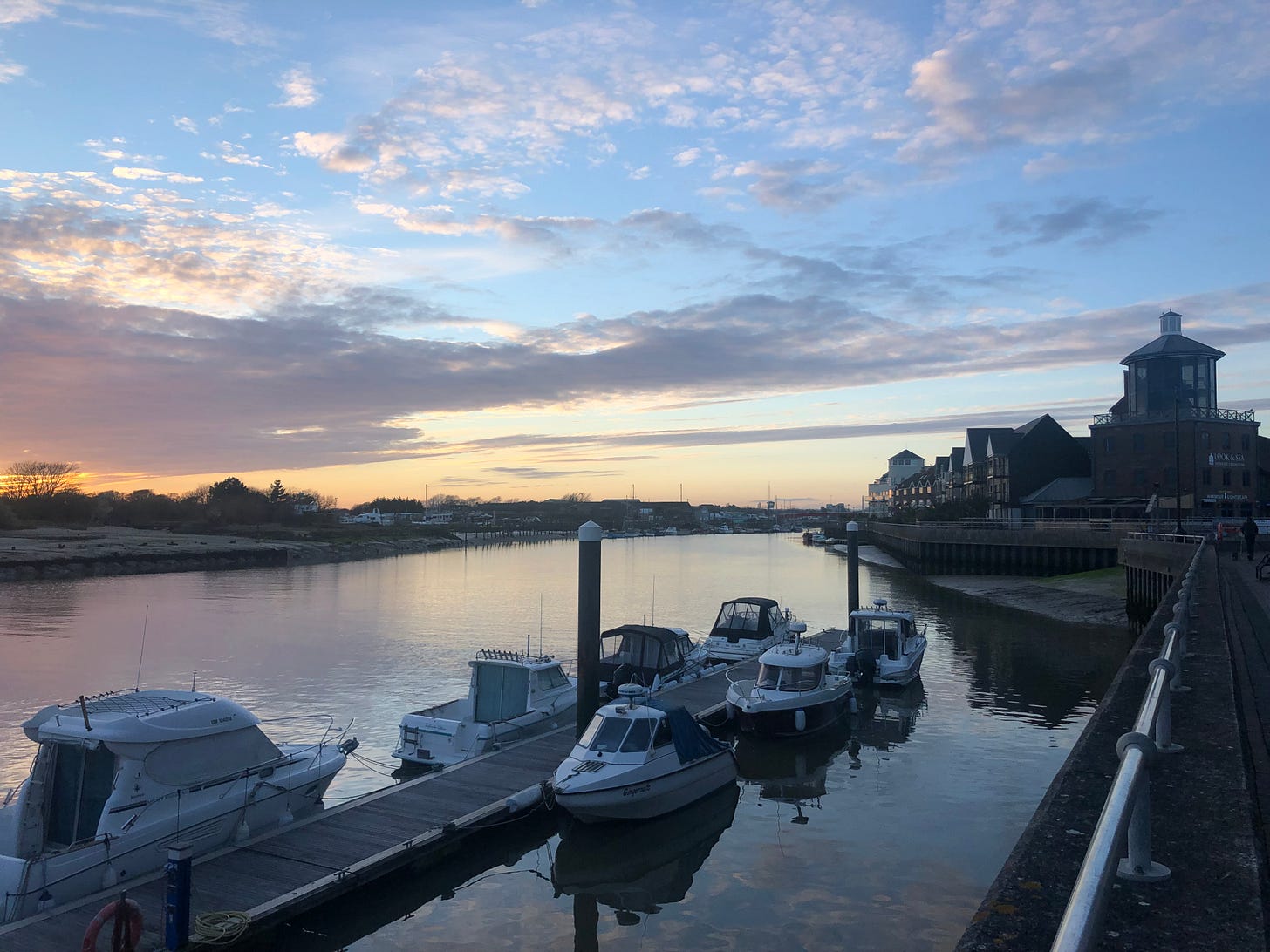
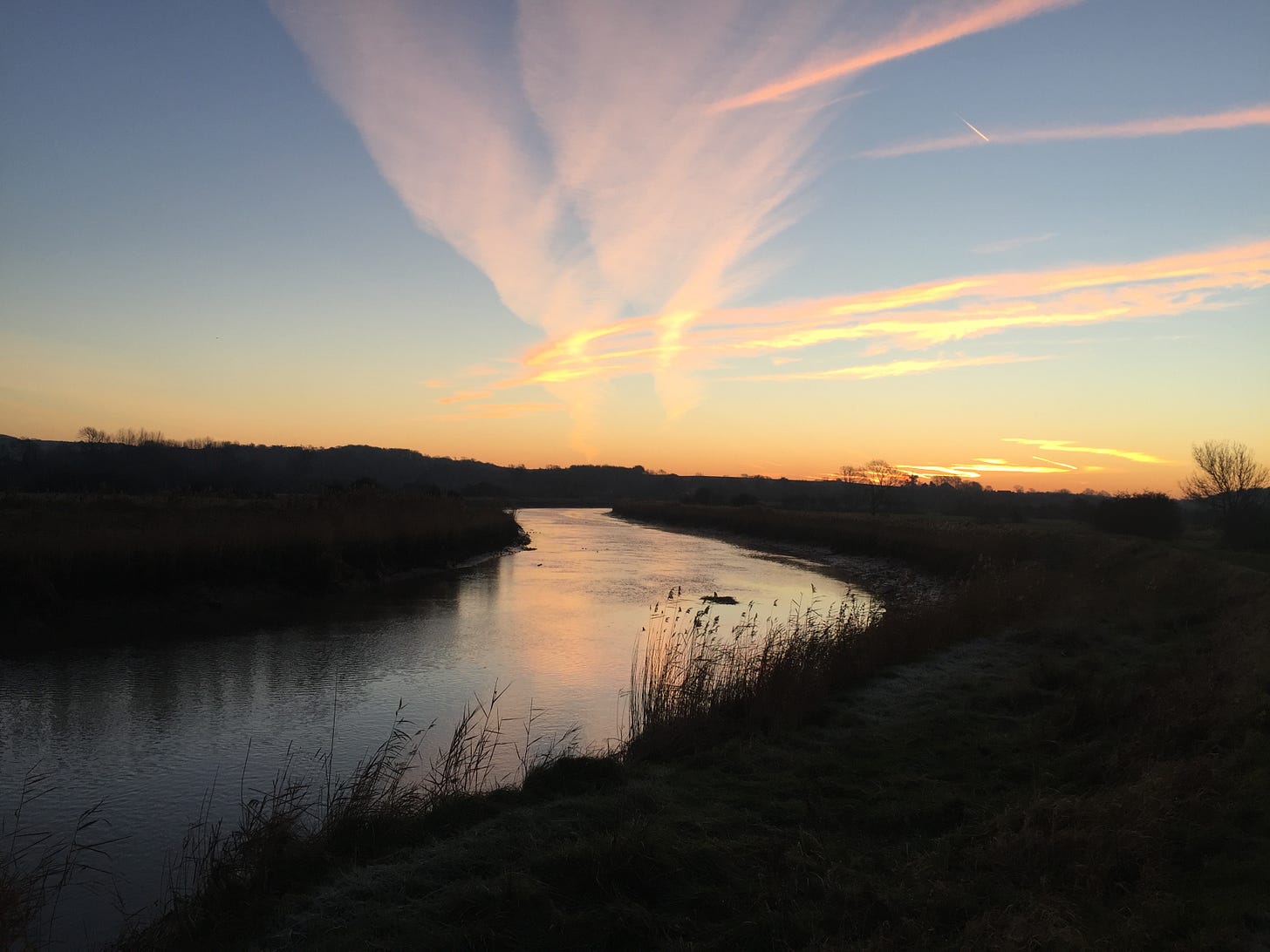
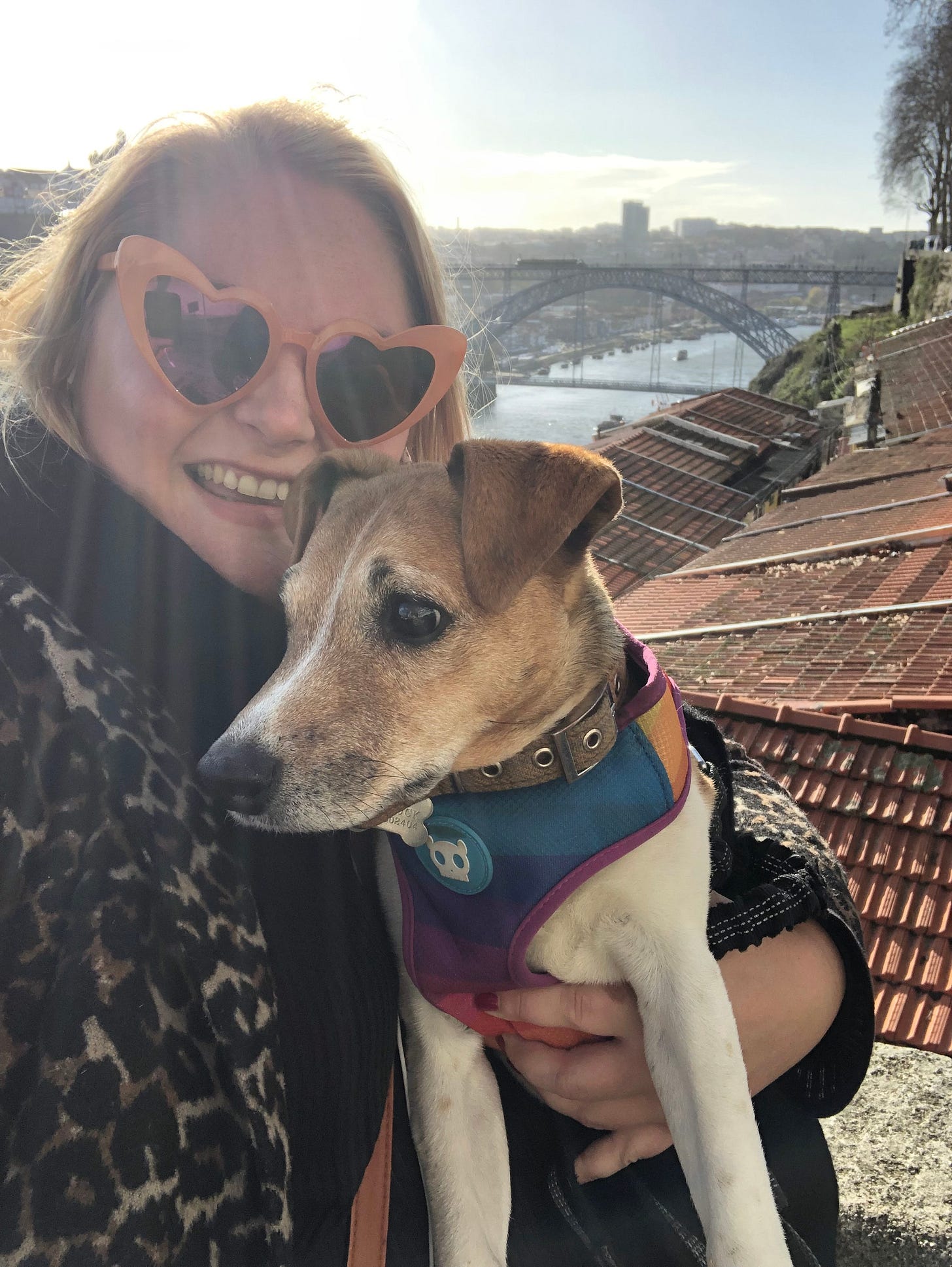
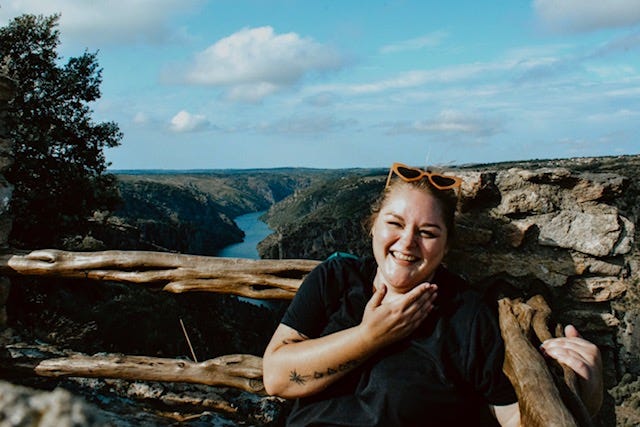
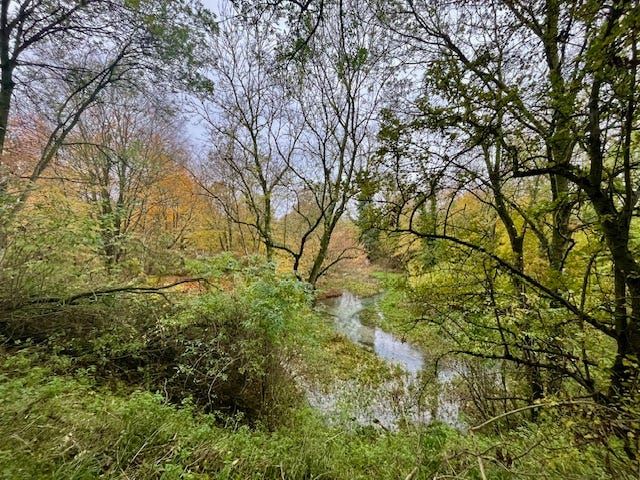
This is beautiful, can't believe you got me tearing up over a river. I knew the Thames too, but it's cleaner, younger self in Oxford, before it reaches the big city and becomes jaded and focused.
This was such a delight to read 💙 thank you for such a lovely piece of writing, it is a beautiful testiment to the central role of water in our lives. So happy to have stumbled upon your page here this morning! :)